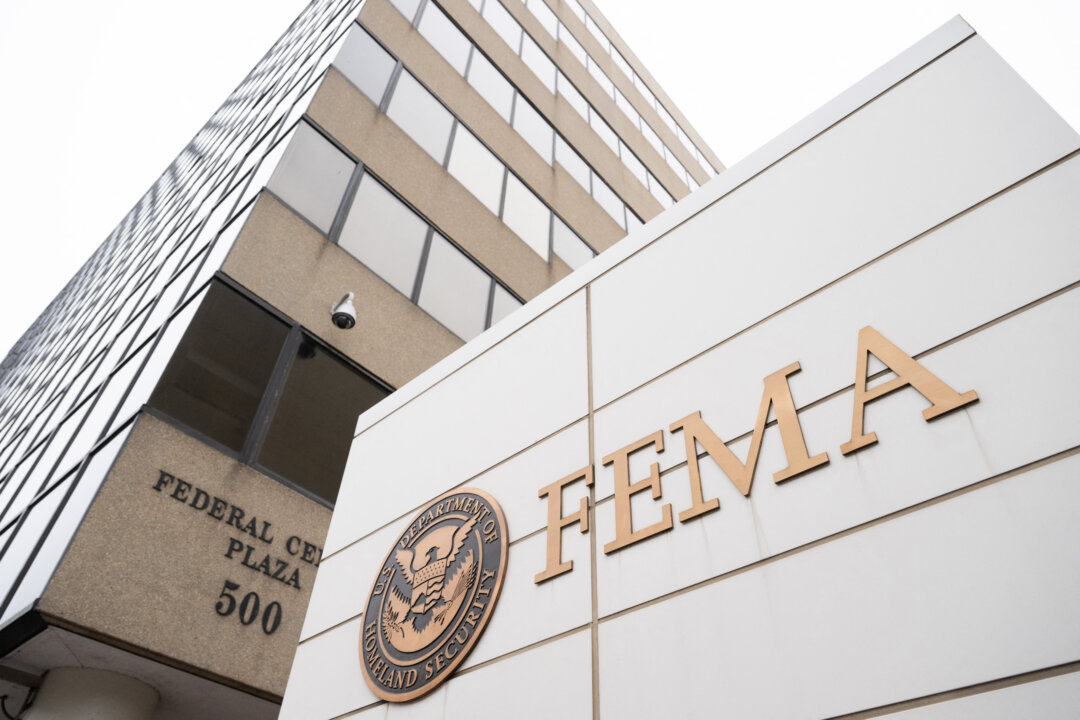Oregon Secretary of State Tobias Read was in North Carolina asking the U.S. Election Assistance Commission about President Donald Trump's executive order on elections.
(Photo by Laura Tesler/Oregon Capital Chronicle)As a federal judge on Thursday temporarily blocked parts of President Donald Trump’s sweeping election executive order, Oregon’s top elections official joined officials from around the country in North Carolina questioning federal agency leaders over plans to implement Trump’s order.Trump in March ordered the U.S.

Election Assistance Commission, a relatively obscure federal agency created after the contested 2000 presidential election, to update the national voter registration form to require prospective voters prove citizenship and withhold federal funding from states that accept ballots after Election Day. Oregon, which conducts its elections entirely by mail, accepts ballots mailed and postmarked by Election Day that arrive after the election. Oregon and Washington, which also runs elections by mail, filed a lawsuit against the order earlier this month.
Democratic attorneys general in 19 other states filed a separate suit, as did a coalition that included the League of United Latin American Citizens, the League of Women Voters Education Fund and the Democratic National Committee. Thursday’s injunction from U.S.
District Judge Colleen Kollar-Kotelly in Washington, D.C., applied to that last case.
Kollar-Kotelly blocked the Trump administration from requiring proof of citizenship while legal arguments continue, but she declined to block the mailed ballot deadline. Oregon Secretary of State Tobias Read, a Democrat who took office in January, and state elections director Dena Dawson were in Charlotte, North Carolina, on Thursday for a meeting with the Election Assistance Commission. Read spoke to the Capital Chronicle from Charlotte about the injunction and the feedback state and local election officials shared with the commission.
“The fact is that the Trump administration is threatening actual security, and it’s an ongoing battle,” Read said. “The injunction is a good thing, but fundamentally, we have to be ready for any kind of a disruption in our election systems, whether it’s a natural disaster or a human or policy disaster.”Election officials from around the country and of different political parties had two messages for the commission, Read said.
First, they were concerned about how Trump’s executive order would make it harder to run elections and harder for eligible voters to participate. Second, Trump doesn’t have the authority to govern elections, which are the responsibility of states. “Everybody comes with a different perspective and experience, but I think there was pretty dramatic unanimity of saying, ‘This is infringing on the responsibility of states and localities to run their own elections,’” Read said.
He’s particularly concerned about threats to withhold money and other resources from states, especially after this November’s election saw ballot boxes damaged by incendiary devices in Portland and in Vancouver, Washington. Most ballots in Oregon were unscathed because a fire suppressant within the box protected them, but hundreds of Washington voters had their ballots destroyed. Election offices in Oregon and around the country also received envelopes of mysterious white powder, and election officials have faced threats that necessitated additional security.
“This is not theoretical, it’s not abstract,” Read said. “It’s real. And yet this administration is saying, ‘Unless you do what we want you to, which is legally dubious at best, then we’re going to threaten these kinds of things.
’”Read and other election officials also oppose requiring voters to prove citizenship, though most Oregon voters already provide such documents thanks to the state’s automatic voter registration program that began in 2016. Under that law, Oregonians who present their U.S.
birth certificates, passports or other documents that prove citizenship while getting or renewing driver’s licenses or state identification cards have their information forwarded to the Secretary of State’s Office, which then registers them to vote.Trump’s order would require voters to provide a passport or U.S.
birth certificate to register to vote and end online voter registration. The advocacy group Common Cause Oregon estimates that about 1.8 million Oregonians don’t have passports or access to original documents, and nearly 1 million married women in the state could be disenfranchised because their legal names don’t match the names on their birth certificates.
“What we’ve got to remember here is that the impacts, were this to go through, would not be evenly felt across populations,” Read said. “Think about seniors. .
.. Think about people who are overseas military.
Think about women who’ve changed their name.” GET THE MORNING HEADLINES. SUBSCRIBE.
Politics

Oregon Secretary of State Tobias Read welcomes injunction of Trump election order

As a federal judge on Thursday temporarily blocked parts of President Donald Trump’s sweeping election executive order, Oregon’s top elections official joined officials from around the country in North Carolina questioning federal agency leaders on its plans to implement Trump’s order.















